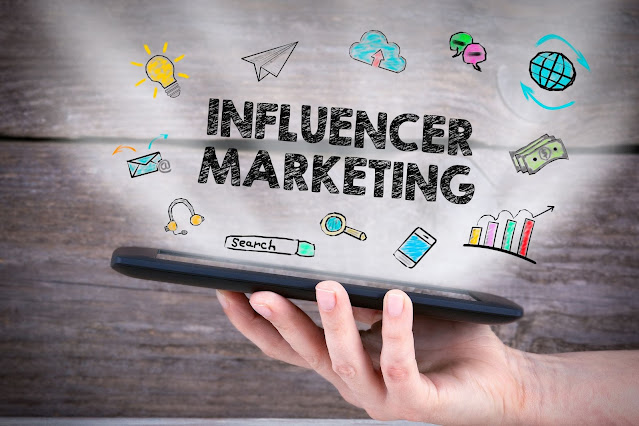Does Influencer Marketing Work? A Detailed Analysis
Influencer marketing refers to the practice of promoting a product through a partnership between a brand and a prominent user of social media. Marketers have taken notice of the rise of influencer marketing in recent years, and many have made efforts to capitalize on this trend. The big question is whether or not influencer marketing via social media is effective.
To provide an answer, as a professional digital marketing company in Kolkata, we’re going to this discussion the benefits and drawbacks of using influencers in marketing campaigns.
Pros:
● Increased Reach & Exposure:
The expanded audience and visibility gained through influencer marketing are major perks. Brands can expand their reach by collaborating with social media influencers who have already built up a sizable fan base. The result may be more people knowing about and using the brand.
● Targeted Audience:
To reach a niche demographic, businesses might use influencer marketing. There is a correlation between an influencer's specialization or field of expertise and the interests of their followers. Because of this, brands will have an easier time reaching their ideal customers.
● Credibility and trust:
Many people look up to social media influencer marketers because of the rapport they've established with their fans and followers. A brand's credibility and the likelihood that a follower will consider purchasing the brand's products or services increase when an influential person supports them.
● Cost-Effective:
When compared to more conventional forms of promotion, influencer marketing can save money. Influencer marketing can be carried out on a smaller budget than more traditional forms of promotion.
● Genuine contents:
Brands may connect with their intended consumers through genuine, engaging content with the help of influencer marketing. Content that is both honest and relatable can help influencers connect with their audience and generate more interactions.
Cons:
● Lack of Control:
The lack of editorial oversight over material produced by influencers presents a significant challenge for firms using this strategy. Brands may not always be in control of the messaging when the digital marketing agency in Kolkata uses its unique style, tone, and voice. Because of this, the brand may lose touch with its intended consumers.
● Difficulty Measuring ROI:
Return on investment (ROI) calculations for influencer marketing are notoriously tricky. The effect an influencer has on sales or the number of people who've seen the brand's message can be hard to pin down.
● Inauthentic Endorsements:
It's possible that some influencers are more interested in making money than they are in providing genuine product endorsements. The legitimacy and trustworthiness of the brand could take a hit if fake endorsements were to emerge.
● Over-saturation:
As more and more companies embrace influencer marketing, competition intensifies. This makes it more challenging for brands to gain exposure.
● Possible Legal Complications:
When an influencer is not honest about their affiliation with a brand, it can lead to legal complications for the brand using influencer marketing. It is the responsibility of the brand to ensure that any influencers promoting the brand comply with applicable laws and regulations and that any relationships they may have with the brand are disclosed.
The work of influencer marketing involves several steps:
● Identifying influencers:
Companies need to zero in on influencers who can help them connect with their desired customers.
● Building relationships:
The best way for brands to connect with influencers is to interact with their content, reply to comments, and work together on initiatives.
● Preparing a campaign:
Brands and influencers need to collaborate on campaign planning to ensure that the result is something that benefits both parties.
● Producing contents:
Content produced by influencers typically features the brand's offerings and is shared widely. Sponsored posts, reviews, tutorials, and other forms of material are all fair game.
● Conducting the Campaign:
Marketing based on endorsements has begun, and the influencer's audience has been exposed to the campaign's material.
● Evaluation of the Campaign
Advertisers should track indicators like campaign engagement, audience size, and revenue to gauge the success of their efforts.
● Optimization of Ad Campaigns:
The best Brands as well as the influencers may adjust the digital marketing strategy to bring the best result for the company.
To ensure that an influencer marketing campaign is successful and achieves its goals, it is necessary to put significant time and effort into its preparation, coordination, and implementation.
Why choose influential marketing?
The term "influencer marketing" refers to the practice of forming promotional partnerships between businesses and social media personalities with sizable fan bases. Marketers select influencer marketing for a variety of reasons:
● Targeted reach:
To get their products in front of an interested and engaged consumer base, brands may now leverage influencer marketing.
● Authenticity:
Fans put more stock in the opinions of influencers because they trust them.
● Cost-effectiveness:
When compared to more conventional kinds of advertising, influencer marketing often yields better returns on investment.
● Observable progress:
The results of your influencer marketing efforts may be monitored and analyzed with relative ease.
● Increased brand awareness:
Influencer partnerships are a great way to expand your brand's reach and exposure.
Conclusion
Influencer marketing is an efficient method for brands to build genuine relationships with their target audiences and increase revenue.
To sum up, influencer marketing has the potential to be an efficient method of promoting brands, but it also has its drawbacks. When deciding whether or not to use influencer marketing, companies should weigh the benefits against the risks and make sure they work with the best possible influencer. Finally, the goals of the brand and the quality of the material produced by the influencer will determine how effective influencer marketing is.
=========================================================================
Read More Blogs
PVIS Blog | WordPress Blog | SB Blog | Strikingly Blog | BCZ Blog | Wix Blog



Comments
Post a Comment